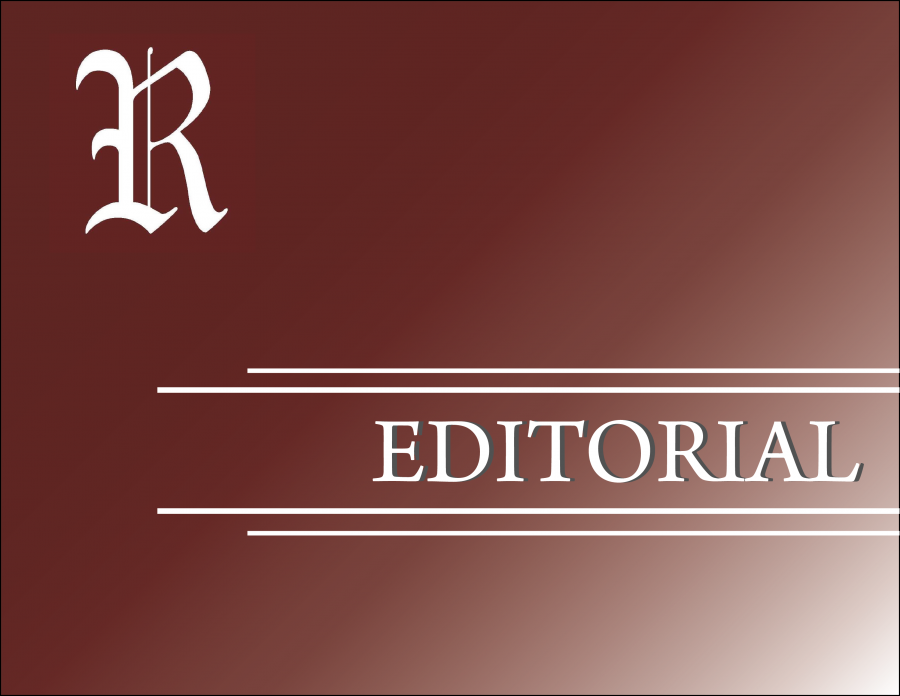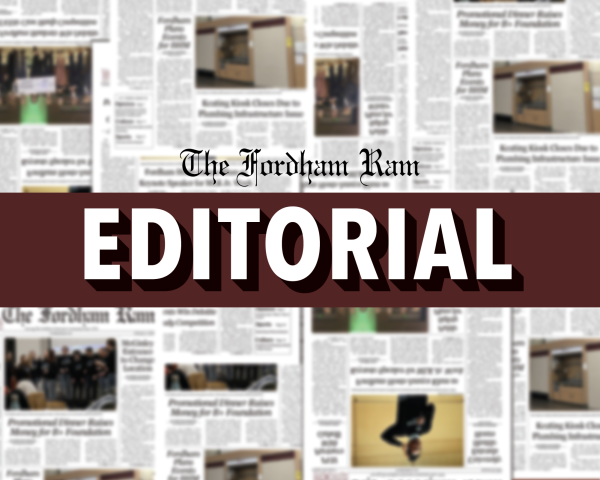President Trump’s Behavior Sends Dangerous Message
Shortly after midnight on Friday, Oct. 2, President Donald Trump announced via Twitter that he had tested positive for COVID-19, along with First Lady Melania Trump. The president was transported to Walter Reed National Military Medical Center on Friday, with White House physician Dr. Sean Conley assuring the public that Trump was only suffering from mild symptoms. While at Walter Reed, the president received multiple experimental and investigational treatments for the virus that are typically reserved for patients suffering from severe symptoms.
On Sunday, Oct. 4, President Trump left his isolation in an SUV, with a security team, to greet his supporters gathered outside of the hospital. Trump’s behavior actively disobeyed health and safety guidelines by exiting isolation and coming into contact with others. His decision to leave not only endangered those who traveled with him by increasing chances of exposure but also sent a dangerous message to his supporters that, even after a diagnosis of COVID-19, safety protocols can be disregarded.
Trump’s tone continues to minimize a virus that too many Americans already do not take seriously enough. On Monday, Oct. 5, the president tweeted that he would be leaving Walter Reed in the evening and told Americans, “Don’t be afraid of Covid. Don’t let it dominate your life.” Later, on Oct. 6, he tweeted that flu season was coming up: “Many people every year, sometimes over 100,000, and despite the Vaccine, die from the Flu. Are we going to close down our Country? No, we have learned to live with it, just like we are learning to live with Covid, in most populations far less lethal!!!” Twitter marked this tweet as spreading misleading and potentially harmful information related to COVID-19.
In the past year, COVID-19 has taken the lives of over 210,000 people in the United States and over one million worldwide. For the United States president to dismiss this disease’s severity and spread misinformation is irresponsible and reprehensible.
Adhering to proper social distancing guidelines and wearing a mask in public spaces is not being “afraid” of the virus — it is being responsible. It is protecting the well-being of others and not just ourselves. “Don’t let it dominate your life” is a shameful thing to say as families around the world lose loved ones. When families lose loved ones and cannot see them before they pass away, there is no option not to let it dominate your life. This statement is also ignorant of those who may be more vulnerable to severe symptoms or who have other fears associated with potentially catching COVID-19. To imply that everyone has the choice to disregard COVID-19 concerns and can simply not let it dominate their everyday thoughts is to ignore a major source of fear and anxiety for so many Americans.
The United States is far from out of the woods when it comes to COVID-19. According to The New York Times, the latest seven-day average for new virus cases is 44,280 cases per day. This average is still much higher than the rates that the country saw from March, when lockdowns first began, through June, when lockdown restrictions began to ease.
The reality is that COVID-19 affects everyone differently, and many unknowns remain. The research into the long-term effects of COVID-19 is only in its infancy, but what has been demonstrated thus far only underscores the need to take the virus seriously. Early studies have found that some of those who were infected with COVID-19 continue to have long-lasting symptoms, including lung damage and intense fatigue. For the president to highlight that he feels “better than I did 20 years ago” after his diagnosis shows complete ignorance of the expansive and intense damage that this virus has done to far too many Americans. At the age of 74, President Trump falls within an age group that faces a 90 times higher death rate than 18 to 29 year olds. His experience is far from the norm: to generalize his recovery with a blanket statement encouraging others not to fear the virus is unacceptable.
Students at Fordham and other universities across the country may feel as though they are invincible to some extent even if they do contract the virus. They may hear the words from our president and feel that being young and healthy is an indicator that a COVID-19 infection will only result in mild symptoms. Although we hope that anyone exposed is safe and healthy, it is important to realize that scientifically this is not the case.
Additionally, regardless of the severity of an individual’s symptoms, young people can infect others who are more vulnerable by disregarding safety precautions.
By virtue of his position, the president must serve as an example for all Americans. President Trump’s behavior should not make anyone believe that COVID-19 is not a real threat. The average American does not have access to the around-the-clock care, the latest medical innovations or rapid testing that the president does. Though the success of the medical innovations used to treat the president is an exciting prospect, access to merely adequate medical care remains difficult for far too many Americans to come by.
This virus should not be a matter of party politics. Politicians obviously play a central role in developing response plans, but it is irresponsible to let political interests interfere with others’ safety and well-being.
At The Fordham Ram, we will not endorse any candidate for the 2020 election. We will continue to cover election debates, political perspectives from students and seek to be unbiased. But this will not stop us from critiquing genuinely harmful advice — COVID-19 must be taken seriously. Though the president was lucky enough to have had mild symptoms thus far, too many others have not been as lucky.
As we have stated in previous editorials, we all have a responsibility in mitigating the spread of COVID-19. We must continue to uphold this responsibility, but we have an additional responsibility to remain educated and informed as well. At the intersection of a presidential election and a pandemic, we must recognize that each of us has the power to make a difference in both situations. It is easy to feel like our vote may not make a difference or that not wearing a mask sometimes will not put anyone at risk, but our actions are more influential than we realize. We cannot neglect these responsibilities.











































































































































































































